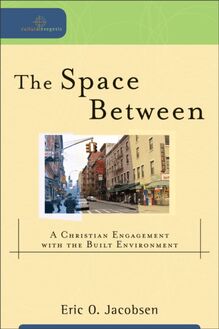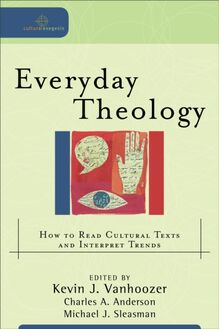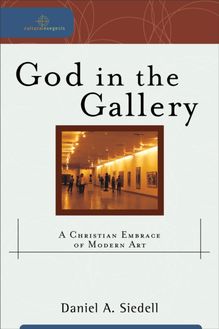-
 Univers
Univers
-
 Ebooks
Ebooks
-
 Livres audio
Livres audio
-
 Presse
Presse
-
 Podcasts
Podcasts
-
 BD
BD
-
 Documents
Documents
-
- Cours
- Révisions
- Ressources pédagogiques
- Sciences de l’éducation
- Manuels scolaires
- Langues
- Travaux de classe
- Annales de BEP
- Etudes supérieures
- Maternelle et primaire
- Fiches de lecture
- Orientation scolaire
- Méthodologie
- Corrigés de devoir
- Annales d’examens et concours
- Annales du bac
- Annales du brevet
- Rapports de stage
La lecture à portée de main
Vous pourrez modifier la taille du texte de cet ouvrage
Découvre YouScribe en t'inscrivant gratuitement
Je m'inscrisDécouvre YouScribe en t'inscrivant gratuitement
Je m'inscrisEn savoir plus
Vous pourrez modifier la taille du texte de cet ouvrage
En savoir plus

Description
Sujets
Informations
| Publié par | Baker Publishing Group |
| Date de parution | 01 novembre 2007 |
| Nombre de lectures | 0 |
| EAN13 | 9781441201720 |
| Langue | English |
Informations légales : prix de location à la page 0,0864€. Cette information est donnée uniquement à titre indicatif conformément à la législation en vigueur.
Extrait
Reframing Theology and Film
Reframing
Theology and Film
N EW F OCUS FOR AN E MERGING D ISCIPLINE
Robert K. Johnston, editor
2007 by Robert K. Johnston
Published by Baker Academic a division of Baker Publishing Group P.O. Box 6287, Grand Rapids, MI 49516-6287 www.bakeracademic.com
Printed in the United States of America
All rights reserved. No part of this publication may be reproduced, stored in a retrieval system, or transmitted in any form or by any means-for example, electronic, photocopy, recording- without the prior written permission of the publisher. The only exception is brief quotations in printed reviews.
Library of Congress Cataloging-in-Publication Data Reframing theology and film : new focus for an emerging discipline cultural exegesis / Robert K. Johnston, editor. p. cm. Includes bibliographical references and index. ISBN 10: 0-8010-3240-7 (pbk.) ISBN 978-0-8010-3240-0 (pbk.) 1. Motion pictures-Religious aspects. I. Johnston, Robert K., 1945- II. Title. PN1995.5.R43 2007 261.57-dc22
2007026890
Unless otherwise indicated, Scripture quotations are from the Revised Standard Version of the Bible, copyright 1952 [2nd edition, 1971] by the Division of Christian Education of the National Council of the Churches of Christ in the United States of America. Used by permission. All rights reserved.
Method is not a set of rules to be followed meticulously by a dolt. It is a framework for collaborative creativity.
Bernard Lonergan, Method in Theology
The surface meaning lies open before us and charms beginners. Yet the depth is amazing, my God, the depth is amazing. To concentrate on it is to experience awe.
Augustine, Confessions
Contents
Acknowledgments
Notes on the Contributors
Introduction: Reframing the Discussion Robert K. Johnston
Section 1: Moving beyond a Literary Paradigm
1. Seeing and Believing: Film Theory as a Window into a Visual Faith Craig Detweiler
2. The Colors of Sound: Music and Meaning Making in Film Barry Taylor
Section 2: Broadening Our Film Selection
3. World Cinema: Opportunities for Dialogue with Religion and Theology Gaye Williams Ortiz
4. Letters on Better Movies Sara Anson Vaux
Section 3: Extending Our Conversation Partners
5. Film and the Subjective Turn: How the Sociology of Religion Can Contribute to Theological Readings of Film Gordon Lynch
6. Hollywood Chronicles: Toward an Intersection of Church History and Film History Terry Lindvall
Section 4: Engaging the Experience of the Viewer
7. On Dealing with What Films Actually Do to People: The Practice and Theory of Film Watching in Theology/Religion and Film Discussion Clive Marsh
8. Polanyi s Personal Knowledge and Watching Movies Rebecca Ver Straten-McSparran
9. Pel culas- A Gaze from Reel to Real? Going to the Movies with Latinas in Los Angeles Catherine M. Barsotti
Section 5: Reconsidering the Normative
10. Theology and Film: Interreligious Dialogue and Theology John Lyden
11. From Film Emotion to Normative Criticism Mitch Avila
12. From Bultmann to Burton, Demythologizing the Big Fish: The Contribution of Modern Christian Theologians to the Theology-Film Conversation Christopher Deacy
Section 6: Making Better Use of Our Theological Traditions
13. Shaping Morals, Shifting Views: Have the Rating Systems Influenced How (Christian) America Sees Movies? Rose Pacatte, FSP
14. Within the Image: Film as Icon Gerard Loughlin
15. Transformative Viewing: Penetrating the Story s Surface Robert K. Johnston
Movies Cited
Acknowledgments
This book is the outgrowth of a three-year consultation on theology and film sponsored by the Reel Spirituality Institute at Fuller Theological Seminary and funded by the Henry Luce Foundation, Michael Gilligan, president. The generous provision from the Luce Foundation allowed fifteen scholars, church leaders, and filmmakers from Europe and the United States to come together to share ideas and to strategize on the discipline of theology and film. These gatherings, which were held on the campus of Fuller Seminary in Pasadena, California, allowed for a unique community of discourse to be formed. We, as contributors to this volume, wish to thank the Luce Foundation for this contribution to an important emerging discipline.
Collections of essays by disparate scholars often suffer from a lack of cohesion. However, the opportunity to discuss together the future of the discipline before beginning our research and writing, and then to hear the results of one another s reflection and research in draft form, allowed the participants to truly be engaged in a common project. It even allowed us to identify several additional areas of research that extended beyond the expertise of the initial group and to enfold the work of other senior scholars into the final project while maintaining a collective voice.
This book would also not have been possible without the support of the Brehm Center for Worship, Theology, and the Arts at Fuller Theological Seminary, J. Frederick Davison, executive director. Its community on campus of several hundred graduate students, faculty, and staff, all committed to theology and the arts, is perhaps singular in size and scope among graduate institutions in English-speaking countries. The center provides a rich resource for dialogue and reflection. Nick Connell and Matt Webb, two students in the program, as well as staff members at Fuller, provided invaluable logistical support for the on-campus consultations. Catherine Barsotti, my partner in teaching, writing, and marriage, was the coordinator for the consultations as well as an active participant in the dialogue. Three of my doctoral students-Tim Basselin, Nelleke Bosshardt, and Tony Mills-provided helpful backup and recorded the sessions. And Brian Pounds, my graduate research assistant, provided valuable editorial assistance as the various essays were brought together and put into a standard form. To all of these I give my thanks.
Notes on the Contributors
Mitch Avila is associate professor of philosophy at California State University, Fullerton, where he teaches political philosophy and aesthetics. His research focuses primarily on theories of global justice, including tolerance for nondemocratic societies and rights for religious minorities. Avila s interest in film derives from both its pedagogical value and its potential to reveal-and sometimes to obscure-the manifold abundance of reality.
Catherine M. Barsotti is a regular instructor at Centro Hispano de Estudios Teol gicos in Bell Gardens, California, in the areas of theology, ethics, and spirituality. She is also an adjunct professor for Fuller Theological Seminary in Pasadena, California, in the Hispanic church ministries and online education departments. Together with Rob Johnston, she has been writing movie reviews for The Covenant Companion and Faith Work for the last ten years. They also coauthored the book Finding God in the Movies: 33 Films of Reel Faith (2004), which won the Spiritus Award for best writing in theology and film.
Christopher Deacy is head of religious studies at the University of Kent (United Kingdom) and a member of the UK Theology, Religion and Popular Culture Network Group. A member of Interfilm, he has sat on the Ecumenical Jury of international film festivals at Locarno and Karlovy Vary. His publications include Screen Christologies: Redemption and the Medium of Film (2001), Faith in Film: Religious Themes in Contemporary Cinema (2005), and Theology and Film: Challenging the Sacred/Secular Divide (coauthored with Gaye Ortiz, 2007).
Craig Detweiler codirects the Reel Spirituality Institute at Fuller Theological Seminary, where he also teaches. Craig is a working screenwriter and documentarian and the former chair of Biola University s film and television program. He is the coauthor with Barry Taylor of A Matrix of Meanings: Finding God in Pop Culture (2003) . As a cultural commenta- tor, Craig has been featured in the New York Times , on CNN, and on National Public Radio.
Robert K. Johnston is professor of theology and culture at Fuller Theological Seminary, where he codirects the Reel Spirituality Institute and serves on the board of the City of Angels Film Festival. His publications include Reel Spirituality: Theology and Film in Dialogue, 2nd ed. (2006), which won the Spiritus Award for best writing in theology and film; Useless Beauty: Ecclesiastes through the Lens of Contemporary Film (2004); and Finding God in the Movies: 33 Films of Reel Faith (with Catherine Barsotti, 2004).
Terry Lindvall holds the C. S. Lewis Chair of Communication and Christian Thought at Virginia Wesleyan College. Formerly Mason Chair of Religious Studies at the College of William and Mary and visiting professor in film and theology at Duke University School of Divinity, he is the author of The Silents of God (2001) and Sanctuary Cinema (2007), as well as executive producer of Cradle of Genius and Lost Letters of Faith.
Gerard Loughlin is professor of theology and religion at the University of Durham (United Kingdom), where he teaches systematic theology as well as religion and film. He is the author of Alien Sex: The Body and Desire in Cinema and Theology (2004), as well as Cin ma Divinit : A Theological Introduction, in Cin ma Divinit : Religion, Theology and the Bible in Film (2005). Among his current projects is a theological study on the films of Andrei Tarkovsky.
John Lyden is professor and chair of religion at Dana College in Blair, Nebraska. He is the author of Film as Religion: Myths, Morals, and Rituals (2003), as well as numerous articles about film and religion. He is currently cochair of the Religion, Film, and Visual Culture Group of the American Academy of Religion.
Gordon Lynch is professor of sociology of religion at Birkbeck University of London and the author of Understanding Theology and Popular Culture (2005) and The New Spirituality: An Introduction to Progressive Belief
-
 Univers
Univers
-
 Ebooks
Ebooks
-
 Livres audio
Livres audio
-
 Presse
Presse
-
 Podcasts
Podcasts
-
 BD
BD
-
 Documents
Documents
-
Jeunesse
-
Littérature
-
Ressources professionnelles
-
Santé et bien-être
-
Savoirs
-
Education
-
Loisirs et hobbies
-
Art, musique et cinéma
-
Actualité et débat de société
-
Jeunesse
-
Littérature
-
Ressources professionnelles
-
Santé et bien-être
-
Savoirs
-
Education
-
Loisirs et hobbies
-
Art, musique et cinéma
-
Actualité et débat de société
-
Actualités
-
Lifestyle
-
Presse jeunesse
-
Presse professionnelle
-
Pratique
-
Presse sportive
-
Presse internationale
-
Culture & Médias
-
Action et Aventures
-
Science-fiction et Fantasy
-
Société
-
Jeunesse
-
Littérature
-
Ressources professionnelles
-
Santé et bien-être
-
Savoirs
-
Education
-
Loisirs et hobbies
-
Art, musique et cinéma
-
Actualité et débat de société
- Cours
- Révisions
- Ressources pédagogiques
- Sciences de l’éducation
- Manuels scolaires
- Langues
- Travaux de classe
- Annales de BEP
- Etudes supérieures
- Maternelle et primaire
- Fiches de lecture
- Orientation scolaire
- Méthodologie
- Corrigés de devoir
- Annales d’examens et concours
- Annales du bac
- Annales du brevet
- Rapports de stage












